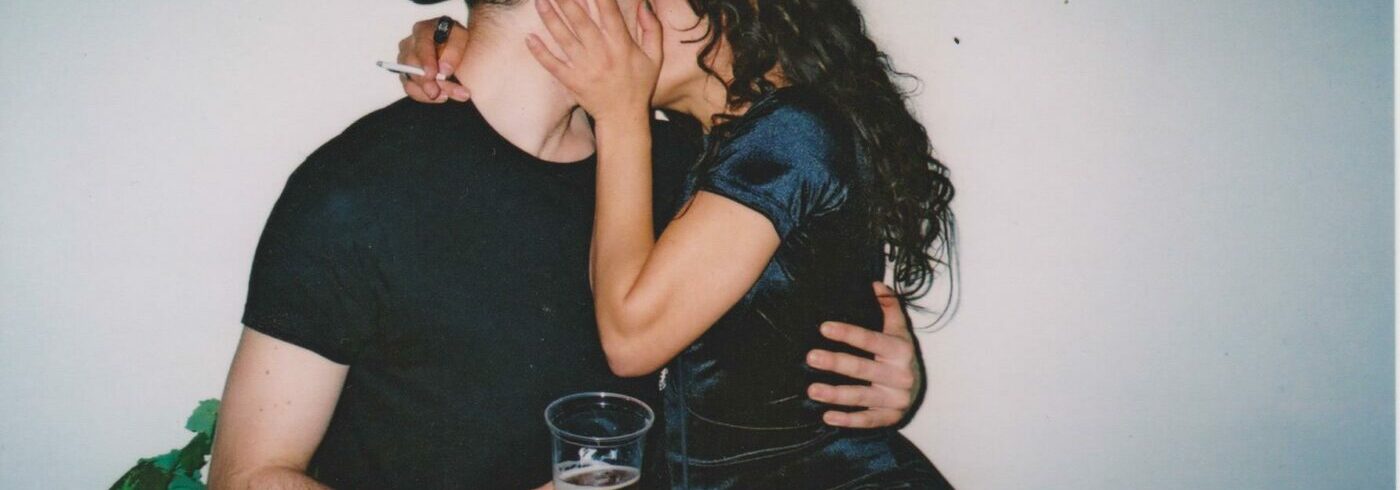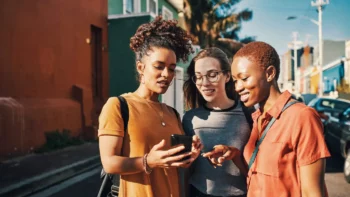
Gen Z and Hook-Up Culture | The One Night Stand That Never Was
Article Highlights
- 'Generation Picky' and the paradox of choice
- Goodbye walk of shame, hello dawn dating
- Stability is the new sexy
- Teach me, TikTok
- Gen Z aren't prudes
Be the first to access new posts and exclusive content
Amongst the doom and gloom of January, the slow creep of Valentine’s Day and Hot Girl Summer feeling further than ever, a vicious rumour has been circling in the shadows. What does it concern, you ask? Sex. Specifically, a lack of it.
Well, in a nod to Lizzo, we can confirm that the rumours are in fact true. Gen Z are officially having less sex than any other generation. In this blog, we’ll take a deep dive into the exact reasons behind this, looking at the rise of #CoupleGoals, how Gen Z are holding their partners to higher standards and why, as a generation known for their liberality, their attitude towards casual sex has changed.
‘Generation Picky’ and the paradox of choice
Gen Z has grown up in the era of convenience. Takeaways are on tap, taxis are available at the push of a button and a revolving stack of romantic potentials lie in waiting on dating apps. This simplicity isn’t always a good thing, however. There is such a thing as too much choice: and it’s making Gen Z pickier than ever.
Reality star Leanne Amaning made headlines in 2020 after dumping her partner on Love Island, citing a sudden pang of disgust, commonly known as “the ick”, as her reasoning. Since then, ick’s have become a quintessential part of the Gen Z dating experience, appearing frequently in pop culture and on social media.
Dating apps like Hinge and Tinder ironically also contribute to what Barry Schwartz coined as the ‘paradox of choice’ (a term to describe which too much choice causes feelings of unhappiness. Think: the grass is always greener). The amount of profiles on these apps feels endless – and whilst having so many options at their fingertips might make some younger users feel powerful, it can also feel overwhelming too. As described by Larissa Birch in The Stanford Daily: “the seemingly infinite supply of options allowed me to care less, to distance myself, to treat people like items in an online shopping cart. And as a result, I found myself deeply unhappy with all of it.”
Equally, if (and when) Gen Z do get past the revolving door of options, and choose a romantic partner, they appear to be holding them to higher standards than before. Research from Voxburner reveals a massive 74% of Gen Z said they wouldn’t match with someone on a dating app who has opposing views from them on green issues, whilst 71% say the same about political views.
Goodbye walk of shame, hello dawn dating
Smeared make-up, 2% phone battery and last night’s clothes shrouded in a borrowed (and hideous) t-shirt. Nothing screams hook-up culture like the walk of shame.
Recently, however, we’ve seen this perilously-necessary marker of modern dating on the decline. As Gen Zers turn away from boozy nights out and favour sober curious lifestyles, they’re looking for new ways to still stay active on the dating scene. The walk of shame has been traded for a different morning activity: dawn dating. Coined by dating app Badoo, dawn dating refers to a bright and early first date, with 71% of people surveyed stating they’d be impressed if someone asked them to go on a date in the morning. 43% of people said they were drawn to this idea because there was no expectation to drink, whilst a solid 35% of people just think it’s a nice way to start the day. Natasha Briefel, marketing director at Badoo, wrote in The Independent “we’re seeing a real shift in how we date now, and ‘dawn dating’ looks to be the latest way singletons can make connections’.
Stability is the new sexy
Molly Mae and Tommy Fury might be distant figures to us, but did we still get excited over their baby announcement? Well, of course. They are #CoupleGoals after all. Relationships amongst famous figures are part and parcel of Gen Z culture, and young consumers feign no pretence about their investment. Gen Z audiences have grown up in an era of break-up announcements, baby announcements, “will you be my girlfriend” announcements and so much more. #CoupleGoals isn’t just a hashtag – it’s a way of life.
On a more glum note, however, it’s also responsible for making our romantic ideals unrealistic, because social media is, by default, never equivalent to reality. As Jo Coker, psychology and relationship expert, writes in Cosmopolitan “Social media and influencers have a lot to answer for. Many peddle a totally unreal life of perfection which influences the public.” Many young consumers thus aren’t interested in hooking up with strangers after a night out – they want the same fairytale that they’re fed through their online consumption – and if they can’t have that, they’d rather be alone. This is supported by Helen Kinsey, the chief science adviser to Match.com, who notes that one night stands are far less common because young people are more dedicated to finding the right person.
Teach me, TikTok
Sex education in school is notoriously terrible. Often characterised by an awkward experiment featuring a banana and reading in between the lines of how to consent to a cup of tea, it’s no wonder that Gen Z believe the sex education they received at school was not enough. Many young consumers are turning to TikTok to learn about topics like sexual pleasure, masturbation and consent.
The decline in hook-up culture plays an important role here. According to Lala, a former social worker and the anonymous owner of the popular sex advice Instagram page LaLaLaLetMeExplain, women are wising up to the fact that “a one night stand isn’t going to result in much pleasure for us. There’s so much to consider for women: we could get pregnant, we’ll probably get thrush, we might get BV, we might get herpes. When you consider all of that, is it really worth this one night of possibly not-very-good pleasure?”.
The more educated young consumers are about the risks of one night stands, it appears the more likely they are to turn away from them. Data from Plenty of Fish confirms this, with 51% of singles maintaining one night stands are a ‘thing of the past’.
Gen Z aren’t prudes
It’s important to note that this decline in hook-up culture isn’t due to Gen Z holding prudish qualities. In fact, it’s quite the opposite. Gen Z-ers are known for their transparency, promoting a culture that sees stigmas broken down via viral TikTok videos, sexual health no longer a taboo topic and more people coming out about their sexuality than ever. Gen Zers are active opponents of slut-shaming and are often hailed as the most open and liberal generation yet. It just appears that whilst they’re fine to talk about sex, the actual practice is…somewhat lacking.
Want more articles like this? Subscribe to our Weekly Briefing and have the latest insights, research and Gen Z trends delivered to your inbox every week.
Image source: vice



